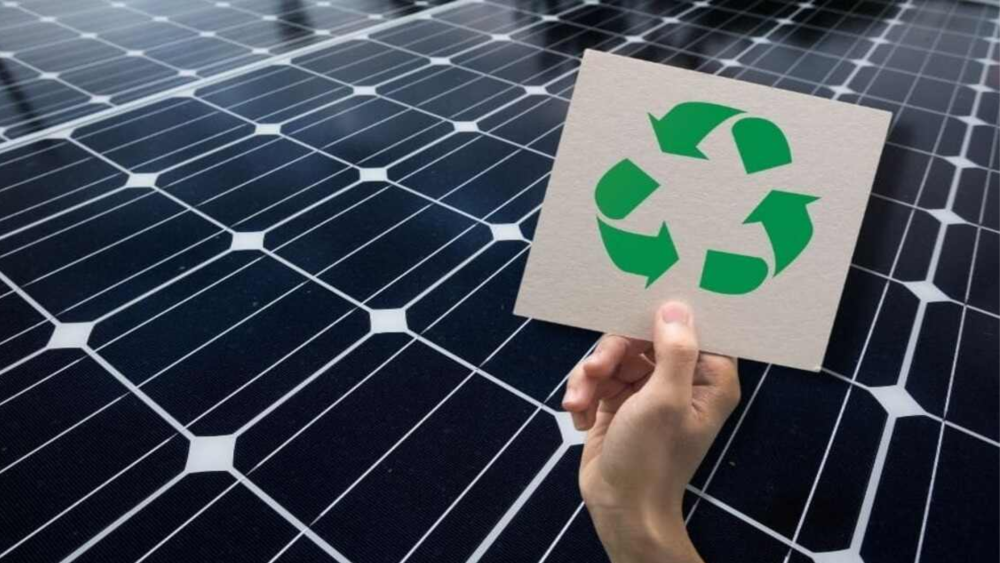Solar vs. grid power: how much can you save?
Electricity rates are on the rise. The U.S Energy Information Administration (EIA) estimates that electricity prices in the U.S. rose 6.2% in 2023 alone.
Homeowners across the country are looking for ways to reduce their energy costs and many are turning to solar energy. But just how much can you save with solar and is it worth the investment?
Solar customers can often save tens of thousands of dollars over the lifespan of their solar system. To determine exactly how much you can save, you’ll have to do a little math.
Compare your current cost per kW from Georgia Power Co with the cost per kW of your solar system. Then calculate your monthly or yearly expenses across a 25-year period. Finally, subtract your total cost of energy with solar from your total of energy from the grid to determine your savings
A simpler way to estimate your savings potential is to compare your current monthly energy costs with your projected solar payments. If your energy costs are higher than your solar payments, there is a good chance you will see savings.
At Solar Cost Calculator, we suggest that anybody paying more than $100 a month for electricity should consider solar.
What solar incentives Georgia Power Co does offer?
Category : Financial Incentive
Website : https://www.georgiapower.com/business/products-programs/efficiency-maintenance/ceep.html
Applicable Sectors : Commercial, Construction, Industrial, Nonprofit, Schools, Federal Government, Installers/Contractors, Agricultural, Institutional
Incentive Amount : Business Equipment High-Efficiency Servers: $100/server High-Efficiency Battery Charger: $200/unit Office Power Management: Varies See form for details Food Service Varies widely by equipment type See form for details Existing Building Lighting Varies widely by equipment type See form for details New Construction Lighting Varies widely by equipment type See form for details Pumps Variable Speed Irrigation Pump: $50/HP See form for details Heating and Cooling HVAC Systems (Air Conditioners and Air-Source Heat Pumps): Varies by unit type or tonnage Smart, WiFi-Enabled Thermostat: $75/unit Variable Frequency Drives: $50/HP Hotel Key Card Room Energy Control System: $80/room Electronically Commutated Motor on VAV Boxes: $50/motor See form for details Water Heaters Heat Pump Water Heater: $250/unit See form for details Custom Projects Custom Equipment: $0.10/kWh saved See form for details
Implementing Sector : Utility
Category : Financial Incentive
Website : https://www.georgiapower.com/residential/save-money-and-energy/products-programs/home-energy-efficiency-programs/home-energy-improvementprogram.html
Applicable Sectors : Residential, Multifamily Residential, Low Income Residential
Incentive Amount : Individual Improvements: The following items may qualify for rebates of 50% of the cost up to: Program Contractor Required: Air Sealing - $300 Program Contractor or Licensed Professional Required: Duct Sealing - $300 Ductless Mini-Split & Ground Source Heat Pumps - $1,000 Self Installation/DIY: Attic Insulation - $250 Smart Thermostat - $75 Level 2 EV Charger - $50 Dehumidifier - $25 Circulation Pump - $40 Ceiling Fan - $35 Advanced Power Strip $20 Pool Pump Timer - $150 Home Energy Management System (HEMS) - $175 Heat Pump Water Heater - $500 Whole House Improvements: 20% Whole House Reduction - 50% of cost, up to $1,100 Home Energy Assessment - up to $150 Up to $1,100 towards eligible energy efficiency home improvements Multi-Family Improvements: 20% Whole House Reduction - $500 or $1,000 (income-qualified) per unit per year for qualifying improvements 35% Whole House Reduction - $1,000 or $1,500 (income-qualified) per unit per year for qualifying improvements Home Energy Assessment: $75 or $150 (income-qualified); completed by a participating program contractor Smart Thermostats - 50% of cost, up to $38 for ducted, central heating & air systems
Implementing Sector : Utility
Category : Financial Incentive
Website : https://www.georgiapower.com/residential/save-money-and-energy/products-programs/home-energy-efficiency-programs/ease.html#faq
Applicable Sectors : Low Income Residential
Incentive Amount : Varies
Implementing Sector : Utility
Installing and connecting your solar system
When you install a solar system in Georgia Power Co territory, these are steps you can expect to go through:
Once you’ve hired a contractor, you will need to communicate with Georgia Power Co to prepare the interconnection paper. Your contractor will handle most of these responsibilities
After the interconnection agreement has been finalized, your contractor can begin the installation process.
Once your system is installed, it needs to be inspected for safety and code compliance.
After the final inspection, you will receive a written notice within a few days that your system is approved to operate. You can turn on the system yourself or you can contact your installer for further assistance.
Most homeowners prefer to do it themselves. The whole process should only take 10 - 15 minutes.
Is solar worth it for Georgia Power Co customers?
The short and sweet answer is a resounding YES. Going solar is definitely worth it for Georgia Power Co customers. The average homeowner in _UtilityCompanyName_ can save an estimated #### over the lifespan of their solar system.
Going solar is a long game so you need to think several years ahead. It can take a few years to hit your break even period. But between net metering and solar incentives, you can drastically reduce that timeframe.
Want to get an idea for what it will cost you to go solar with Georgia Power Co? You can use our Solar Cost Calculator to generate a customized estimate instantly. We take into consideration a wide range of criteria including location, electric bill, roof size, and other factors. Try it out today and start planning for your future.




